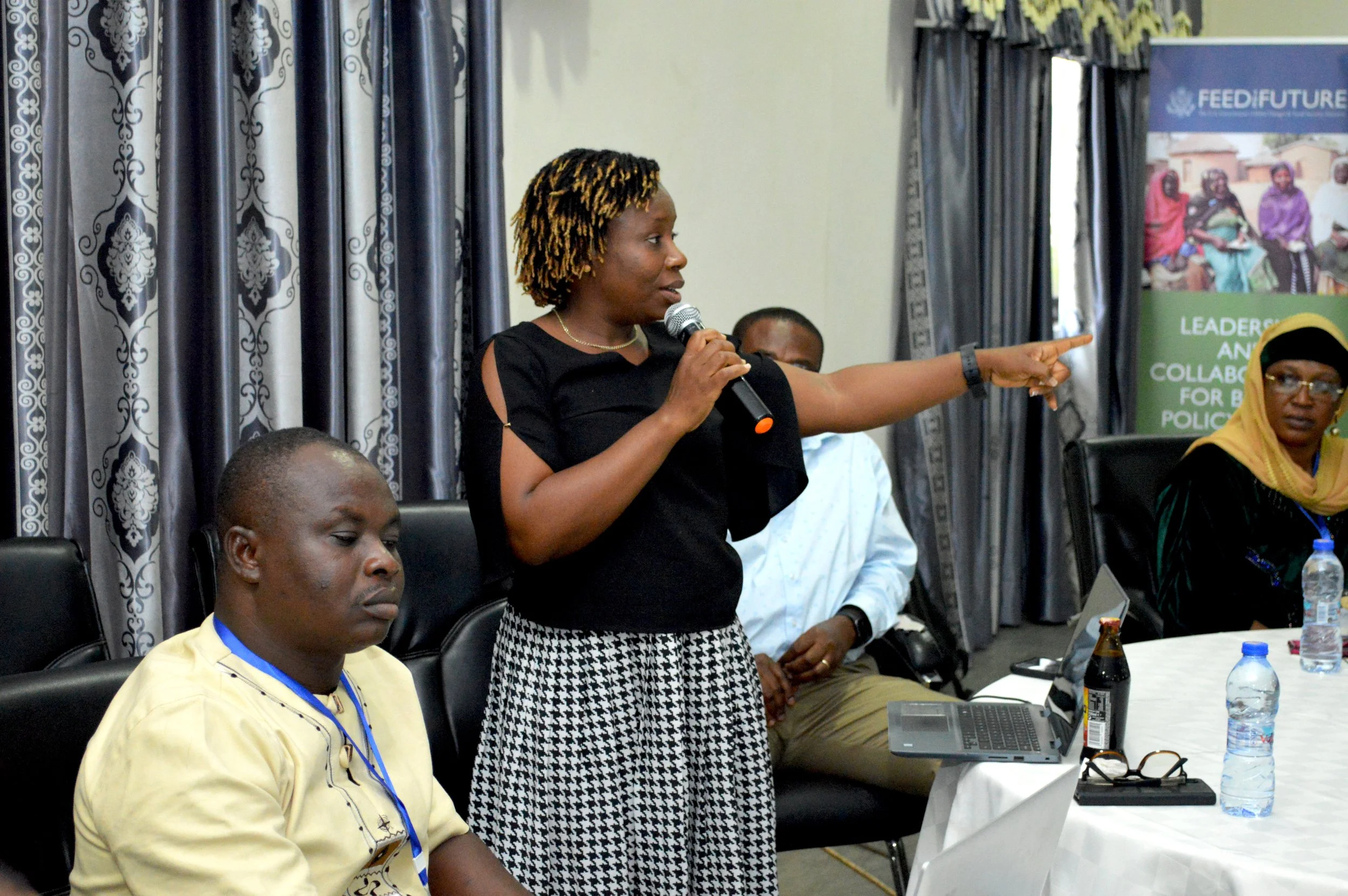Fostering Collaboration Among Users—and Producers—of Climate Information Services in Ghana
A participant in the January 18-19, 2023 workshop on Climate Information Services in Ghana (photo: Policy LINK).
February 3, 2023 - Stakeholders involved in the production, delivery, and use of climate information services (CIS) in Ghana have committed to work together to increase smallholder farmers’ access to CIS in the country.
The commitment comes on the heels of a January 18-19, 2023 workshop organized by the Feed the Future (FtF) Ghana Policy LINK Activity that included the producers and users of climate information. The workshop, which was among the recommendations emerging from a stakeholder-led climate change assessment facilitated by Policy LINK last year, sought to co-develop innovative solutions that enhance the delivery of CIS, especially to smallholder farmers.
With more than 90 percent of agriculture practice in Africa being rainfed, farmers on the continent have become extremely vulnerable to unpredictable climate conditions.
With more than 90 percent of agriculture practice in Africa being rainfed, farmers on the continent have become extremely vulnerable to unpredictable climate conditions. Farmers in Ghana are experiencing delays in the start and end of the rainfall season, a reality that is contributing to high crop failures. Farmers are also grappling with erratic, intense, and irregularly distributed rainfall within the season, resulting in increased droughts and floods that destroy crops and damage infrastructure.
In Ghana’s five northern regions (four of which constitute the FtF Zone of Influence)—an area characterized by large dry plains with sparse tree cover—smallholder farmers are gradually accepting the extreme changes in local weather patterns and are adopting wide-ranging methods to reduce impacts, increase crop yields, and reduce livestock mortality.
“We rely on the information the producers give us to help us plan when to plant our seeds or apply fertilizer,” said one farmer participant at the workshop.
The United Nations Economic Commission for Africa (ECA) describes CIS as the packaging and disseminating of climate information to specific users. It involves collating, analyzing, packaging, and distributing climate data on variables such as temperature, rainfall, wind, soil moisture, ocean conditions, and extreme weather indicators.
For smallholder farmers, CIS can help them make climate-smart choices that reduce their susceptibility to climate change's impacts, increasing agricultural productivity and safeguarding food security. To get there, farmers will need location-specific climate information rather than the generalized reports announced mainly through radio stations.
“The pace at which the information is given is a problem for us, and it should be translated into languages we, the farmers, can understand—not just English and a few local languages,” said one participant.
Participants in the workshop pose for a group photo outside the venue (photo: Policy LINK).
The 41 participants, who included CIS users, producers, researchers, and policymakers, discussed the implementation of the 2020 National Framework for Climate Services and proposed steps to improve CIS delivery in Ghana. They called for regulation of the sector to ensure that data used, reliability indicators for the services delivered, packages offered, and costs will adhere to global standards. They further proposed that the Ghana Meteorological Agency (GMet) take up the regulatory role but advised a de-coupling of the Agency’s role as a CIS provider from the proposed regulatory function.
The participants also recommended the establishment of a national platform to facilitate continuous dialogue among themselves and, particularly, between producers and users. The platform, the stakeholders said, will safeguard users’ involvement in design through to the completion of service production and delivery.
Resources
Read Policy LINK-produced briefs emerging from a stakeholder-driven climate change assessment.


